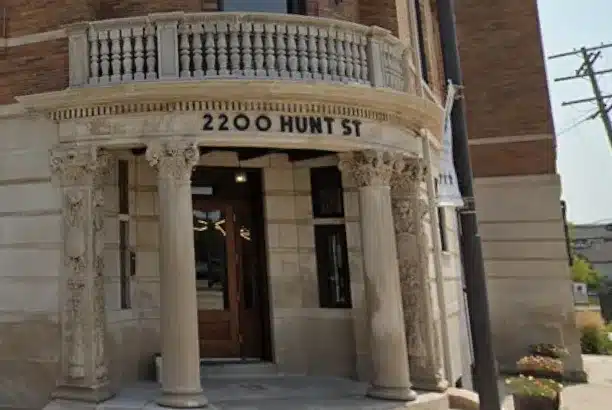Expert Personal Injury Attorneys Help Victims Recover Fair Compensation For Their Injuries Throughout Florida

From motor vehicle accidents to slip and fall cases, negligent security, food poisoning, bed bug injuries, pedestrian accidents, construction accidents, and other personal injury cases, RTRLAW has you covered if you’re injured by someone else’s actions or negligence in Florida.
Even if you have auto accident and health insurance coverage, an injury caused by someone’s actions or negligence can leave you with significant hospital and medical expenses that can be difficult to pay. Additionally, you may experience lost wages due to your inability to work, which can quickly create a financial crisis. If you’ve suffered a catastrophic injury, such as brain or spinal cord injuries, you will most likely require ongoing specialized medical care for the rest of your life.
Therefore, if you’ve experienced a personal injury, the best thing you can do to protect yourself and your family is to hire a skilled personal injury attorney who can stand up for your legal rights.
RTRLAW is a dedicated personal injury law firm with qualified attorneys dedicated to helping personal injury victims obtain the justice and maximum compensation they deserve for their injuries. Many people don’t like the idea of filing a lawsuit; however, in many cases, the only way to hold the responsible party accountable for their negligence is to file a claim for financial compensation.
What Are the Benefits of Hiring a Personal Injury Lawyer?
Many personal injury victims initially hesitate to hire a lawyer. Injury victims are often worried about how much an experienced lawyer may cost, especially if they have been unable to work or have incurred substantial medical costs. Personal injury attorneys, such as the ones at RTRLAW, take injury cases on contingency, which means clients pay nothing upfront or until the attorney wins your case and recovers money. In addition, it’s always in your best interest to consult with an attorney on an injury case, as personal injury law can be overly complex and challenging to try to navigate independently.
Hiring a well-qualified lawyer should be a top priority if you’re injured because they can look out for your interests. Often evidence disappears, and witnesses to your accident may be hard to locate. A personal injury attorney can make sure the evidence is preserved and get witnesses’ testimonies to ensure you have the best chance at success in your case.
Some of the other most critical reasons to hire a personal injury attorney include:
- An understanding of the legal process and what is necessary to file a claim: Your attorney can help you fill out the legal paperwork and submit it quickly to the insurance company. An insurance provider may sometimes attempt to deny your claim if the paperwork is filled out incorrectly, is submitted late, or is missing information.
- An objective approach to your case: After you’ve been injured, you’re most likely experiencing a wide range of emotions, making it difficult to look at your claim objectively. However, with their training and experience, a personal injury lawyer can evaluate your claim and determine the financial compensation needed to provide for your needs.
- Strong negotiating skills: Sadly, many insurance companies try to use deceitful tactics when dealing with personal injury victims. They often try to undervalue a claim and offer the injured party far less than their claim is worth. They may also attempt to delay or deny a claim to avoid paying a large financial payout. A trained personal injury attorney knows all the tricks that insurance companies use and has the negotiating skills necessary to help clients obtain fair compensation.
- Expedite the settlement process: If you don’t have an attorney, it may take a long time to recover compensation. In most cases, the insurance provider may want to wait until an injury victim has recovered to settle a claim. However, a personal injury attorney can file a claim for you to negotiate a settlement sooner to have the financial resources you need to continue with your life.
When you hire the personal injury attorneys of RTRLAW, we’re on your side throughout the entire legal process and can help you get the justice and the compensation you deserve.
Can a Personal Injury Lawyer Help Me Recover Compensation For Medical Expenses?
One of the most significant benefits of hiring a personal injury attorney centers around their ability to obtain compensation for your medical expenses and other damages you’ve suffered. Depending on the circumstances of your case, a skilled personal injury attorney may be able to recover both economic and non-economic damages, also referred to as compensatory damages.
What Are Economic Damages?
Economic damages are awarded to personal injury victims to reimburse them for money they’ve paid out of pocket due to being injured. Economic damages also refer to the money they may have to pay in the future for medical care, such as rehabilitation, physical therapy, or prescription drugs.
Some of the most commonly awarded economic damages include:
- Past and future medical bills
- Lost wages
- Loss of earning capacity
- Property damage
Catastrophic injuries, which can be the result of accidents, may include the loss of limbs, traumatic brain injury, organ damage, or spinal cord injuries. Unfortunately, medical care for these types of injuries can quickly become cost-prohibitive for many injury victims and their families. If you or a family member has suffered catastrophic injuries that require long-term specialized medical care, a personal injury attorney can thoroughly evaluate the case and decide the amount of financial compensation that will sufficiently provide for future expenses.
When Can I Recover Non-Economic Damages?
Non-economic damages are awarded to reimburse injury victims for intangible losses they have suffered. Because these damages are subjective to each situation, they differ in every case.
Some of the most commonly awarded non-economic damages include:
- Pain and suffering
- Emotional distress
- Loss of enjoyment of life
- Loss of companionship
- Permanent disfigurement and scarring
RTRLAW’s personal injury attorneys will advocate on your behalf to get you the most compensation possible for your injuries so that you can resume your life.
Will My Personal Injury Case Have to Go to Court?
One of the most common questions our clients ask is if their personal injury case will have to go to court. Naturally, many injury victims dread the idea of having to deal with expensive and time-consuming litigation.
The good news is most personal injury cases don’t go to court. One of the advantages of having a personal injury attorney like RTRLAW handle your case is they can negotiate with the insurance company for you to reduce the chances of having to go to court. What’s more, injury victims who are represented by personal injury attorneys have a greater chance of recovering more compensation than those who don’t hire an attorney.
Insurance companies have teams of lawyers whose only job is to look for loopholes to avoid paying claims. However, when an insurer knows that you have a lawyer willing to fight for your rights, they are more willing to offer you a fair settlement that will give you the peace of mind you deserve.
Why Should I Hire RTRLAW for My Personal Injury Needs?
RTRLAW’s experienced and aggressive personal injury attorneys are licensed and admitted in Florida, and standing by to assist our clients 24 hours a day, seven days a week at one of our Florida locations.
If you’ve been injured and need to speak to an attorney immediately, or would like to get a free, no-obligation case review, please CHAT WITH US NOW, contact us or call us toll-free at 1-833-HIRE-RTR (1-833-447-3787).
RTRLAW has provided caring and compassionate legal advice and assistance to injury clients in Florida since 1988. For more than three decades, we have helped tens of thousands of clients and secured hundreds of millions of dollars in settlements and verdicts. At RTRLAW, we fight for our clients’ rights and to help them get a recovery in their favor after suffering injuries from another’s negligence.
We know you’re in enough pain – not just from your injuries but also from financial hardships sustained from being unable to work or live your life to the fullest from your accident and injury. Our personal injury attorneys work hard to hold those responsible for our client’s injuries accountable for their actions. In addition, we will fight to get the most compensation possible for our clients.
If we choose to take your case, you pay NOTHING unless we win your case and recover money for you.
For a free, no-obligation case review any time, CHAT WITH US NOW, fill out the contact form below, or call us toll-free at 1-833-HIRE-RTR (1-833-447-3787).
Revision History:
- Dec 31, 2025 at 8:34 am by RTRLAW (displayed above)
- Dec 31, 2025 at 8:34 am by victor


 CALL US NOW
CALL US NOW TEXT US NOW
TEXT US NOW



























